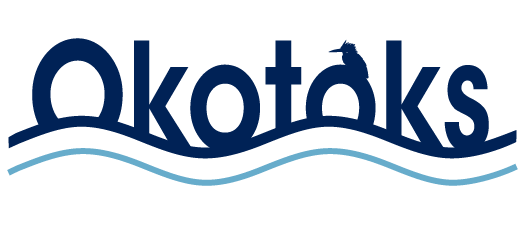What is the collection mandate?
The Okotoks Museum and Archives collects and preserves artifacts and archival records of permanent value to the history of Okotoks and district. This includes collecting artifacts (objects) and archives (photos and documents) that were created by local families, organizations and governments. The scope of collecting currently emphasizes three areas:
- Living in Okotoks: Demographic change, family life, communities, neighbourhoods, religion, sports, recreation, leisure, and education
- Working in Okotoks: The changing economic base of Okotoks, including business, manufacturing, labour and transportation
- Governing Okotoks: Politics, citizen groups and community organizations
How are potential donations reviewed?
Potential donations of artifacts are reviewed by the Museum Specialist and the Culture and Heritage Manager to determine the artifact's suitability relative to the collection mandate. Consideration is given to the physical condition of the item, the number of similar items that exist in the museum’s collection, and the importance the artifact (or its owner) had on the history of Okotoks. If it does not meet the criteria for the museum collection, it may be considered for the education collection.
What is the difference between the museum collection and the education collection?
The museum collection is comprised of artifacts and archival material directly related to Okotoks and district. These items are part of the museum’s permanent collection and are used in museum exhibits and displays to help tell the history of Okotoks. They may also be available for viewing by researchers. Items that do not meet this criteria may be considered for the education collection. The education collection is comprised of artifacts that are unrelated to Okotoks, but still have educational value to school and community programs. Items in the education collection are not part of a permanent collection and may be used for hands-on programming.
Will the Okotoks Museum and Archives appraise my donation for its monetary value?
Under Revenue Canada, the Museum can provide appraisals for the monetary value of items with a value of under $1,000. Donations for objects valued at under $1,000 are evaluated by museum staff using a minimum of three industry-accepted contemporary sources. Donations with a value of over $1,000 will need to be evaluated by a third-party appraiser. Since the beneficiary of the appraisal is ultimately the donor for taxation purposes, the museum does not pay for third-party appraisals. Museum staff do not appraise objects for a third-party appraisal.
Can I take a tax deduction for my donation?
The Okotoks Museum and Archives is operated by the Town of Okotoks. The Town of Okotoks issues charitable donation receipts under Section 110(1) of the Income Tax Act. To ensure that you receive the maximum tax benefit, it is recommended that you consult with your own accountant, attorney, and/or Revenue Canada.
Will the Okotoks Museum and Archives exhibit the artifacts or documents in my donation?
The Museum cannot guarantee that any items or documents donated to its collection will always be on exhibit. Artifacts from the collection are rotated frequently to complement the theme of the current exhibit as well as to ensure the long-term preservation of the object. When not on display, the artifact is housed in an environmentally controlled storage area, following national industry standards.
Does the Okotoks Museum and Archives accept loans?
The Museum does not accept long-term loans. It does, however, accept artifacts on a short-term basis for use in temporary exhibitions or programs. A loan agreement is executed between the lender and the museum outlining the terms and conditions of the loan. The museum also accepts loans of original material for the purpose of creating a copy for the museum collection.
How do researchers access artifacts and documents in the Okotoks Museum and Archives' collection?
Access to artifacts is available to researchers by appointment only. The Museum makes most of photographs, documents and newspapers, and published materials in its collection available to the public for research in its Research Room. To best help facilitate your research, contact the Museum at 403.938.8969 to make an appointment.



